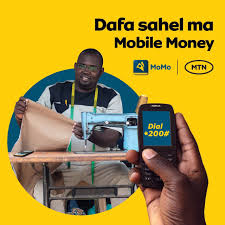The move by the Bank of South Sudan (BoSS) to legalise the mobile money platform operated by telecom companies as a legal tender and a valid and legal form of payment for goods and services has been received with mixed reactions from economic analysts, citizens, business owners, and civil society activists.
On Friday evening, the Bank of South Sudan issued a statement informing the public that mobile money has been recognised as a valid form of payment in line with the Bank’s strategic plan 2023 to 2027 to increase the adult population’s use of mobile money service to 30 percent by 2027.
It said the goal is to make digital financial services and products accessible to the excluded section of the population at a relatively low price.
Reacting to the move, James Boboya, a prominent South Sudanese economic and political analyst, welcomed the move, saying it will help expand the electronic system in the country.
“The move by the Central Bank to allow mobile money services to become a legal platform for exchange is quite significant in a way that it will help to expand the electronic system because in South Sudan, there are very few people who engage in electronic banking, and in that, transactions become extremely problematic,” he said. “In the decision of the Central Bank to recognise the mobile money platform is in the people’s interest. People will be involved in a lot of electronic transactions, and it will mitigate the liquidity crisis that the government is currently facing.”
However, Dr. Abraham Maliet Mamer, an economic analyst and adviser to the government’s economic cluster, questioned the legality of the move.
“If the constitution says so, then we can use the mobile money platform as a legal tender, but what I know so far is that our bank note is our legal tender. So, if the Bank of South Sudan has gone in that direction, then there must be some legal backup so that we don’t get into legal battles,” he argued. “Some people can take the Bank of South Sudan to court if there is no legal backup because the currency in the constitution is the South Sudanese Pound.”
“What people should understand is that the platform where you transfer money from one institution to another is not a legal tender, but just a normal transfer that people should not mix this because legal tender is the bank note,” Maliet added.
A Juba resident, Julius Dada, welcomed the move, saying South Sudan should be moving to a cashless society as it is the practice in the region and the rest of the world.
“It is a good move for South Sudan because the world is going digital and as South Sudanese, we should not be left behind by technology,” he said. “Most countries are going cashless, and in the rest of East Africa, most transactions are digital. I encourage all our business people to embrace it because tomorrow they will know the benefits.”
“South Sudan is currently facing a cash shortage, so if we go digital, it will solve the challenge of liquidity scarcity,” Dada added.
He called on the Central Bank to enlighten the public about the mobile money payments.
For his part, Wani Yussif, another Juba resident, welcomed the move but questioned if the Central Bank has done enough research on the matter.
“That is a brilliant idea by the Central Bank to modernise the payment system, but I do not know whether they did surveys to know how many people have been doing transactions online for the past three years,” he said. “If they have the data, they can establish whether the citizens are convinced and doing mobile money transactions. Also, they should deal with the poor telecom services people complain about.”
According to Yussif, people deposit money on mobile money platforms, but it is difficult to withdraw. He urged the government to ensure quality telecom services.
Meanwhile, Joseph Apai Arkangelo from Yambio said it is a very positive step by the Central Bank.
“With mobile money legalised, we no longer need to carry large sums of cash at home, which enhances security and convenience. It helps protect our money from misuse and builds trust in the financial system,” he stated. “For businesses, it is important to adapt. Mobile money payments allow customers to place orders remotely and pay securely without physical cash. This digital shift will help grow the economy and improve service delivery.”
Cash shortages have long plagued South Sudan, especially during salary payments, causing frustration for many citizens.
Siki Angelo from Tambura County shared his relief and said people often see their salaries in the bank system but find no cash.
“The approval of mobile money payments is a breakthrough and it will help us access our funds faster and more reliably,” he said.
Despite the progress, challenges remain in rural areas. Stephen Paite from Maridi County reported that while mobile money agents are present, many cannot provide cash withdrawals due to limited funds, and agent registration for certain services like MGurush remains scarce.
“Mobile money agents need proper funding to operate effectively,” Paite said. “If agents don’t have cash on hand, it undermines public trust and the whole system.”
Some community members have also raised concerns about inconsistent network connectivity and unclear transaction fees that affect mobile money use.
A concerned resident in Western Equatoria commented: “Network instability, especially on weekends, disrupts transactions. We also need transparency to avoid paying extra fees just to deposit or withdraw money.”
Civil society activist Edmund Yakani lauded the move, noting it can help reduce illegal cash hoarding and improve financial oversight.
“By encouraging digital payments, the government can better monitor the money supply and reduce risks related to physical cash,” he said.
Regulators and law enforcement agencies have been tasked with ensuring compliance, and the Central Bank aims to increase mobile money adoption to 30% of the adult population by 2027, focusing especially on rural communities.




